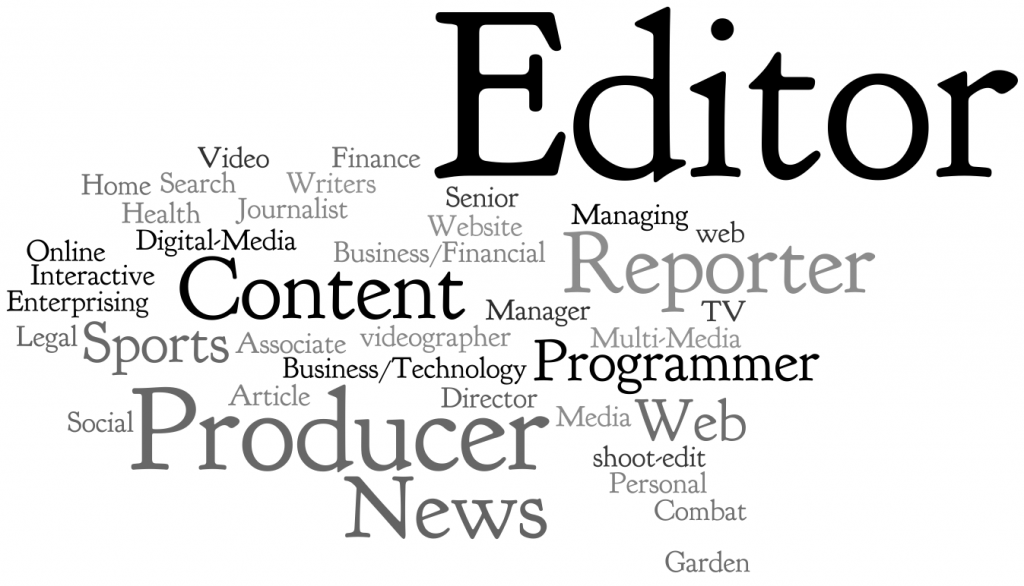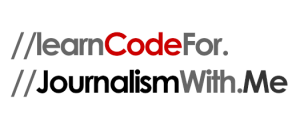NOTE: This piece is also running on OJR: The Online Journalism Review
With our industry in such turmoil, the constant technological changes, the evolution of news consumers and the uncertainty of the future, the question on the minds of veteran and aspiring journalists alike is what skills do I need to stay relevant, employed and innovative.
That’s the number one question I have gotten over the years. (That and equipment recommendations.)
Everyone has an answer.
There have been pieces written recently saying journalists need to become programmers. Debates over how important Flash is to a reporter. I even remember speakers coming to my class when I was in college advising photographers to look for other careers because still photography, they incorrectly predicted, was dead.
Um, they are pretty much all wrong, in my humble-yet-cocky-sounding opinion.
“So, smart guy, what’s your genius answer,” you ask. Well, it’s the same one I gave some ten years ago.
Know journalism.
The top skills required for a Web journalist are solid news judgment, strong ethics, thrive under deadline, accuracy and a mastery of the AP Stylebook. Other skills I include are knowledge of HTML, experience with CMS, working understanding of SEO, being social in Social media and the willingness to try new technologies.
Plus, the ability to tell stories in all media: text, photos, audio, video and the combination. At the very least, know and respect each of these crafts and how they are used on the Web.
But again, the most important skill is journalism, not the latest technology.
While I’ve been preaching this for a while, some people don’t agree.
So, I did a test.
I took nearly two-dozen New Media job postings from journalismjobs.com and compiled a list of skills they were looking for… then I ran the list through Wordle to visualize the top requirements.
I’ll let the image speak for itself.

If you must know, here are the skills I collected:
HTML, Mac, PC, AP style, news judgment, copy editing, headline editing, organized, interact with online readers and newspaper staff, multitask on deadline, video and audio editing, improve site traffic trends, OAS, posting information, wire copy, photos, HTML, CSS, sports fan, Copy editing, headline writing, nights, holidays, weekends, accuracy, attention to detail, problem solving, Photoshop, deadlines, optimization, innovative editor, search engines, social networks, headline writing, Financial news editing experience, multimedia approach to Web content, video, graphics, photos, polls, social networking media, Four year college degree, TV/Web production, journalism, new media, Final Cut pro, Adobe Photoshop, Basic script and package writing skills, strong editorial judgment, strong time management skills, work independently, tight deadline, detail oriented, live and on-demand video production, think like a producer, editor, and writer, basic video editing, program production, edit raw video, headlines and descriptions, leadership, web based experience, multiple media, print headline writing and editing, grammar, spelling, punctuation, usage and style, multitasking, news judgment, accuracy, news on the Internet, news wires, coordinate assignment and development of stories, video and interactive, accuracy, timeliness, balance, comprehensiveness, multimedia, Traditional journalism skills, move beyond text to tell stories interactively, team player, design experience a plus, desktop computer applications, editorial content from television and print, accurate, collaborate with editors, write copy, create compelling headlines and captions, organize multimedia and make sound news judgments, strong news judgment, blogosphere, passion for sports, flexible, quick-thinking, energetic, efficient, and able to work independently under pressure, attention to detail, crafting clever headlines and tease copy, choosing and cropping appropriate images, packaging, editing, writing for the Web, headline writing, image selection, and content packaging skills, AP Stylebook and Chicago Manual of Style, work quickly, breaking news, deadline pressure, Basic HTML, Photoshop, online publishing tools, news judgment, blogosphere, flexible, quick-thinking, energetic, efficient, crafting clever headlines and tease copy, choosing and cropping appropriate images, packaging, editing, and writing for the Web, headline writing, image selection, and content packaging skills, AP Stylebook and Chicago Manual of Style, HTML, Photoshop, online publishing tools, technology experience and connections, IT reporting, editing experience, sharp writing, editing, write SEO-friendly content, tease text, HTML, write quickly, breaking news, technology reporting and editing, editing stories, news writing, interviewing, computers, word processing, news judgment, editorial, creative skills, journalistic ethics, libel laws, write clearly, AP writing style, TV camera operator, video editor, Adobe Premier, Final Cut Pro, news judgment, social media, Twitter, Facebook, aggressive, hard-working editor, multi-media reporting, social media, communication, organizational, multitask, multimedia production, editorial experience in print, online or broadcast, leadership, teamwork, interpersonal, under pressure, tight deadlines, problem solve, Photoshop, Final Cut Pro, WordPress, content management systems, write, produce and post content, news editorial, AP style, Accuracy, Deadline-oriented, organized, multi-tasking, I-News, HTML, Adobe Photoshop, nonlinear editing, writing skills, editorial skills, attention to detail, writing and editing online copy, project management, social media, HTML, search-engine optimization, e-commerce, web analytics, basic programming, mobile, RSS, audio podcasts, video, writing, editing, and proofreading, Chicago Manual of Style, deadline pressure, Microsoft Office, writing, capturing visual content and editing stories, Videography, non-linear editing, Final Cut Pro, AP style, deadline, Lift up to 50 lbs.
If you want to check it out, here are the postings:
http://www.journalismjobs.com/Job_Listing.cfm?JobID=1148011
http://www.journalismjobs.com/Job_Listing.cfm?JobID=1147856
http://www.journalismjobs.com/Job_Listing.cfm?JobID=1147846
http://www.journalismjobs.com/Job_Listing.cfm?JobID=1147737
http://www.journalismjobs.com/Job_Listing.cfm?JobID=1147522
http://www.journalismjobs.com/Job_Listing.cfm?JobID=1147535
http://www.journalismjobs.com/Job_Listing.cfm?JobID=1147497
http://www.journalismjobs.com/Job_Listing.cfm?JobID=1136912
http://www.journalismjobs.com/Job_Listing.cfm?JobID=1113672
http://www.journalismjobs.com/Job_Listing.cfm?JobID=1134208
http://www.journalismjobs.com/Job_Listing.cfm?JobID=1147267
http://www.journalismjobs.com/Job_Listing.cfm?JobID=1147236
http://www.journalismjobs.com/Job_Listing.cfm?JobID=1147155
http://www.journalismjobs.com/Job_Listing.cfm?JobID=1147127
http://www.journalismjobs.com/Job_Listing.cfm?JobID=1147056
http://www.journalismjobs.com/Job_Listing.cfm?JobID=1147032
http://www.journalismjobs.com/Job_Listing.cfm?JobID=1147017
http://www.journalismjobs.com/Job_Listing.cfm?JobID=1146274
http://www.journalismjobs.com/Job_Listing.cfm?JobID=1145926
http://www.journalismjobs.com/Job_Listing.cfm?JobID=1144661
http://www.journalismjobs.com/Job_Listing.cfm?JobID=1144661
http://www.journalismjobs.com/Job_Listing.cfm?JobID=1144610
http://www.journalismjobs.com/Job_Listing.cfm?JobID=1144331
As a bonus, I created a Wordle based on the titles:
Online Content Manager, Editor, Search Editor, Business/Financial News Editor, Associate Producer of Video, Health Producer, Senior Editor for News, Sports Programmer, Personal Finance Programmer, Business/Technology Web Editor, Reporter, Combat Sports Reporter, Home and Garden Article Writers, TV ‘shoot-edit’ & web videographer, News Social Media Editor, Editor, Enterprising Legal Reporter, Interactive Managing Editor, Website Content Producer, Web Content Producer, Digital-Media Director, Multi-Media Journalist

What skills do you think are the most important for Web journalists?


